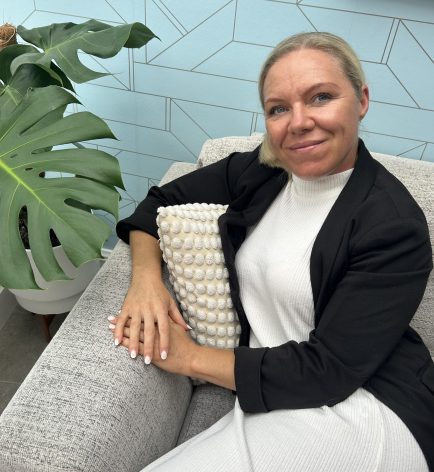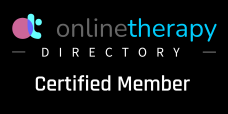Welcome to Counselling with Juliette
Hello and welcome to my Counselling with Juliette website, my own little tiny patch on the internet!
I recognise life brings many challenges, and we all experience times of difficulty in our lives. Life events unfortunately happen…losing loves ones, challenges in our workplaces or losing jobs, changes to our family, breakdowns of our relationships, financial changes, challenges to our health… the list is endless.
The impact of these situations can create a loss of self-worth, direction or even purpose. Talking to a trained professional can help us make sense of these experiences and move us towards a better understanding of ourselves.
I am a qualified counsellor and have supported different people from different backgrounds with a range of diverse problems for over 10 years. I am a registered member of the BACP (British Association of Counselling and Psychotherapy) which is the largest professional body for counselling and psychotherapy in the UK, and I abide by their code of ethics. I am listed in different directories which can be found by selecting each logo opposite.

I have regular training, learning and supervision to keep me up-to-date with best practice and developments within my industry. I also hold an enhanced DBS and I am registered on the Government DBS update service. I have public liability, professional indemnity and cyber security insurance in place and I'm on the register with the
Information Commissioners' Office (ICO), Registration number: ZB677051.
My approach to therapy is a Person-Centred one which focuses on empathy, congruence and unconditional positive regard. This non-judgemental approach provides emotional support and recognises everyone has a built-in motivation to reach for their full potential, but sometimes they need a bit of support to get there!
Please read on for further information about my approach to therapy.
Making the decision to see a counsellor is a big step to take - but it can be a positive one.
Please read on to find out more about how I could help you.
You have already taken the first step.
I know (from my own experience) speaking to a stranger about your problems can be scary, but do not worry, I will put you at ease and will ensure you feel safe to talk. All I ask is…I can be me, and you can be you!
The fact you have already started looking for a suitable counsellor shows are you keen for change.
Please feel free to contact me, I would be happy to answer any questions you may have.
Get in touch
I offer a free 30 minute initial phone call to discuss the reasons you are thinking of coming to counselling, whether it could be helpful for you and whether I am the right counsellor to help. This will also give you the opportunity to ask any questions that are not covered in the FAQ section.
If you are interested in arranging counselling with me, please either send me a message through this Contact Form. This is a safe and secure system.
You can also call my office number on 01788 438 668 if you would prefer to speak with me, please do leave me a message if I am not available, only I have access to the voicemail system on this line.
You can also book a session directly using my Online Booking System.
I aim to ensure all enquiries are answered within 24 hours, and be rest assured all contact is strictly confidential.
Frequently Asked Questions
Confidentiality is one of the main ways in which therapy differs from many other forms of helping - for example, talking to friends or family can rarely offer the same degree of confidentiality as talking to a counsellor. Because of this confidentiality, you will find that - as you get used to coming for therapy - you are freer to talk about whatever you wish to. No therapist can offer 100% confidentiality: there are some situations where the law requires disclosure of risk (e.g. certain child protection issues) and in common with most other therapists, there are some situations where I may not be able to keep total confidentiality. In particular, if someone tells me that they are thinking of harming themselves in a way that I believe puts them at serious risk, or if someone tells me that they are doing something that could put others at risk, I may not be able to keep such information confidential. However, breaking confidentiality is rare, and only happens after talking to the person concerned..
There’s no fixed or ideal length of time for the counselling process; it varies from person to person and will often depend on the depth of the issues they are facing. While I can work on an open-ended basis with clients, I find it is helpful for us to both agree before we start on undertaking a certain number of sessions and reviewing where we are at once we reach that point. You can decide how long your therapy will last, and in return my aim is to make sure therapy continues for only as long as it is of benefit to you. This depends on what your needs are. Some people find that after only a very few sessions they have some clarity and focus and are ready to end the therapy. Other people value the ongoing support and relationship with me and will continue to come for weeks, months, or even years. There is no 'one-size-fits-all' when it comes to therapy.
My aim is to offer you a first appointment, known as an assessment session within 1-2 weeks. However, waiting times will vary according to my avilabity at that time and I will keep you informed when appointments become available.
When you come for counselling it's important that you feel free to talk about whatever is important to you. Sometimes, you may not be clear what those issues are. Having a friend or family member with you is not usually helpful because they may have their own agenda for you. Even if this is just that they want to be supportive, or want you to 'get better', this agenda can prevent us opening issues up.
When you come for therapy, you may need to explore thoughts or behaviours about which you feel ashamed or embarrassed and you may censor yourself so as not to hurt someone, or you may find that what they want you to talk about is not really what you need to discuss. Sometimes, family/friends can even be part of an underlying issue which needs to be aired and discussed. Usually, people who ask this question are nervous about coming for a session alone, or they are anxious for the person who is thinking about arranging sessions. This anxiety is quite normal, and you will not be forced to talk about anything you feel uncomfortable about - but you do need to be able to talk about whatever is important. For this reason, I do not see clients accompanied by friends or family.




